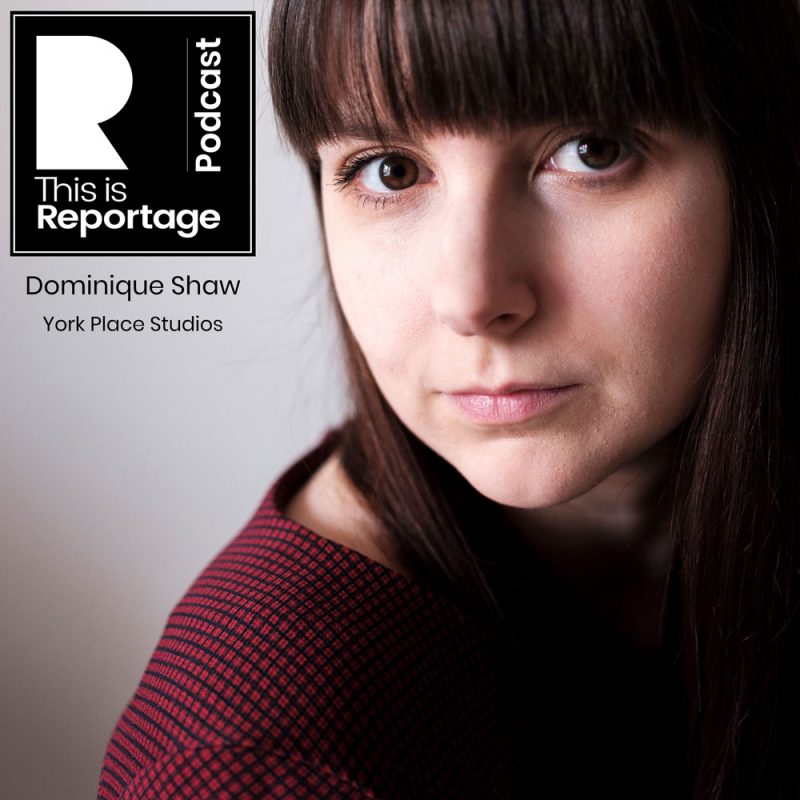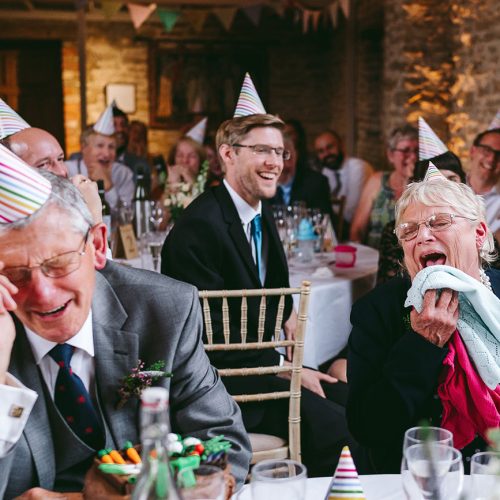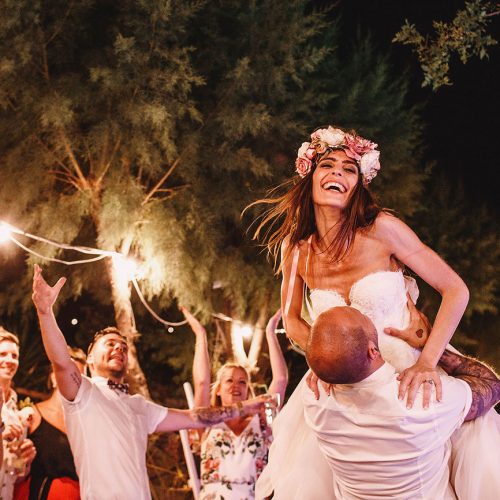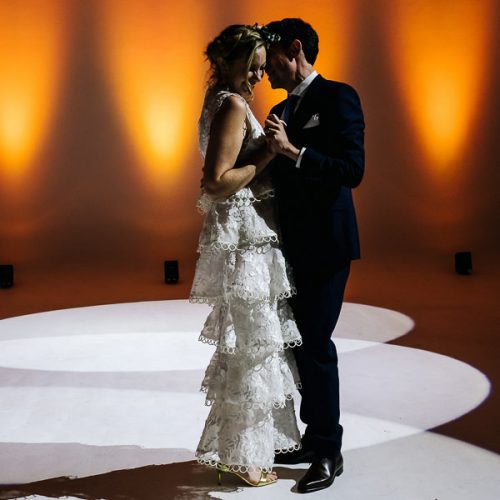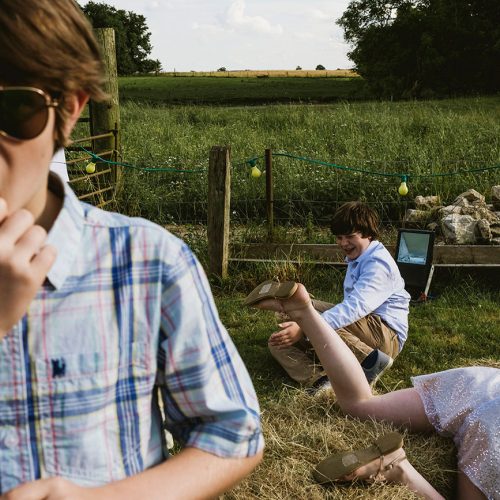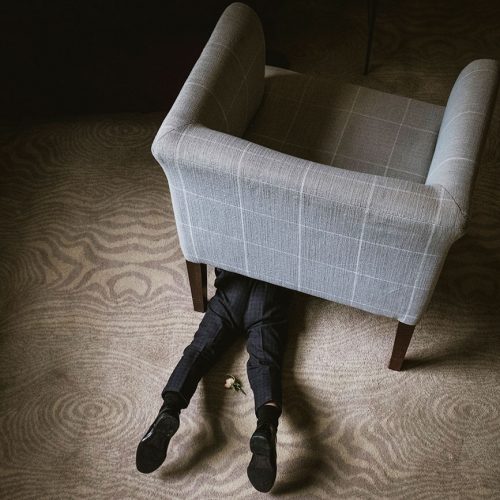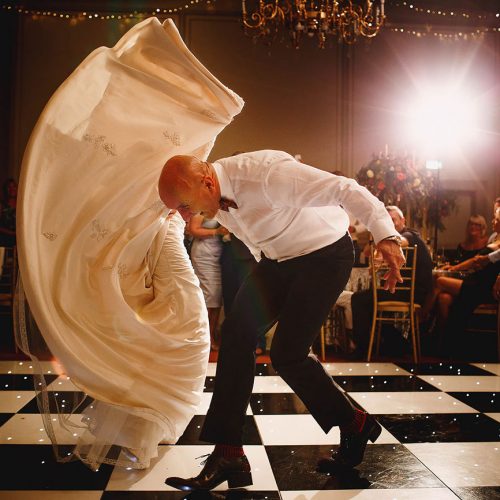Podcast Episode 26: This is Dominique Shaw of York Place Studios
The fab Dominique Shaw of York Place Studios is our guest for episode 26 of the Podcast! With a whopping 13 TiR Awards under her belt – including 6 Story Awards – Dom has been on our Top Photographers of the Year list for the past two years in a row and, alongside her brother Liam, forms the inimitable duo that is York Place Studios.
As well as this Podcast episode today, we’ll be having a Facebook Live with Dom within the next week or so, where you’ll be able to ask her anything about what you’ve heard her say in the episode today, or just any questions at all. Keep an eye out on our social media channels for the exact time and date.
Stick with us today to hear one of the best documentary wedding photographers in the UK share all about:
- how she’s been coping with the pandemic,
- the very beginnings of her business and buying the studio,
- what it’s like working with her brother (Liam Shaw),
- the first wedding she shot at just 16 years old
- studying photography,
- how she built her style; the unique style of York Place Studios,
- her love of Fujifilm,
- what makes her happy,
- the roles they have in their business and how well they get on with each other,
- tips for getting into street photography and how the affect that had on their style,
- the videography arm of York Place Studios and working with videographers in general,
- her favourite lens,
- her top tips for layering,
- behind the scenes of one of her specific Reportage Awards,
- the importance of capturing the small moments,
- tips on shooting without flash,
- her advice on Story Awards,
- and much more…
**UPDATE: We have now also interviewed Dom’s equally-talented brother, Liam Shaw, for the Podcast. Liam was our original POTY in 2018. Listen to his Podcast episode here.
Listen on all our usual ways: Spotify, iTunes, Google Podcasts, YouTube, and below in this post. There’s also a full transcript below if you prefer to read.
Alan Law:
Hey, Dom, how you doing?
Dominique Shaw:
I’m good, thank you. How are you Alan?
Alan Law:
I’m really good. Yeah, thank you. Well as good as can be expected, I guess in this time. Yeah. How are you? How are you coping?
Dominique Shaw:
Yeah, yeah, we’re fine. Obviously haven’t seen Liam for a while now, but we’re talking every day on kind of zoom chats and stuff.
Alan Law:
Are you? Ah yeah, that’s nice.
Dominique Shaw:
It’s absolutely, you know, it’s obviously tricky, but we’re lucky that we can deal with it and everyone’s safe and well and healthy and that’s the most important thing right now.
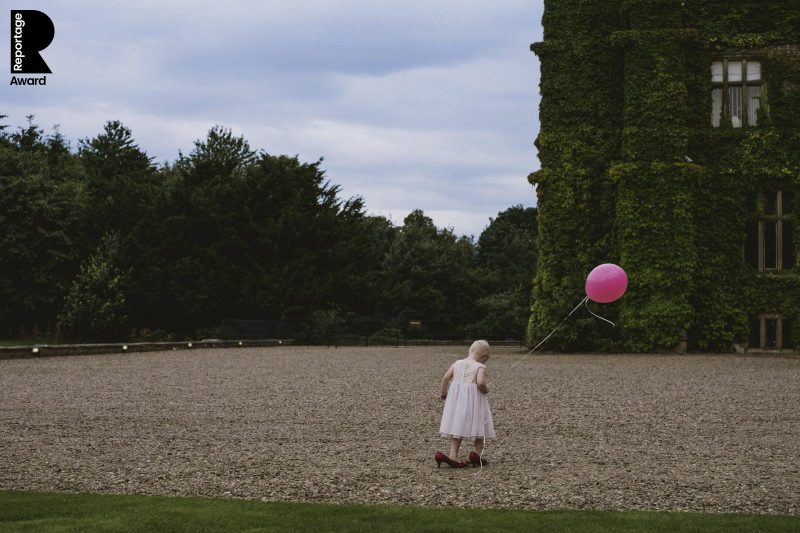
Alan Law:
It is, isn’t it? Yeah. Same here, but we’re all fine bunkered down in Cornwall. How has it affected your weddings? Have you had many postponed?
Dominique Shaw:
Well, we actually had a really quiet April, which was by design because we had a very busy March and February, so we decided to basically take April off. So Liam was going to be going on holiday and me and Matt were gonna spend the time gardening and staying at the house and barbecuing, which is exactly what we’ve done. Which is a little bit random.
Alan Law:
Oh yeah. It is I guess, but that’s worked out well though. That’s pretty handy I guess in that way. Yeah. Bizarre. So have you had any of your summer ones yet postponed or anything?
Dominique Shaw:
We had a few in May and a few in June, but we’ve been able to just change the date and it’s not being too tricky. Whereas, you know, like if it’d been like April, you know, and we’d had a bunch of weddings in there, then that would have been, I think, more chaotic because people would have been like, okay, like instant problems, whereas we had a bit more time to kind of figure it out.
Alan Law:
Yeah, that’s true. Cool. And have the client’s been okay with postponing and things? I guess it’s just scary for them as well for us, isn’t it? I guess.
Dominique Shaw:
Yeah, absolutely. Yeah, we were just talking to a couple today who want to book us for next year. And we were like, yeah this is what we’ve been doing. Because obviously people ask. And it’s like, you know, we’re just moving the dates and communicating. Just treating people kindly and how I’d want to be treated.
Alan Law:
Yeah. I think, yeah, that’s the way to do it, isn’t it? Cool, let’s move on from that massive elephant in the room. So you mentioned him already, you’re in business with your brother, Liam Shaw, of course, which is pretty unique I think in our industry. I don’t actually know of any other brother and sister team in our industry, what is it like working with a sibling and yeah, how did that come about?
Dominique Shaw:
Yeah, I don’t think there is any other brother and sister teams I can think of. Well we started working together in 2006, so pretty long time now. I was like 21 at the time and I had just finished university and I’d studied photography and I got this opportunity to buy the studio. And Liam also had just finished university a few years ago and we decided to go in together, which was really cool. And then we started off when we were doing like portraits and anything really, you know, kind of what will pay the bills. And we did jewellery. We did like lots of like fine art, like not fine art, like a lifestyle kind of, you know, products, anything that we could get our hands on really. And learn and figure out what we liked, I guess. And also pay the bills.
Alan Law:
And had you shot any weddings like individually before then, before you teamed up together?
Dominique Shaw:
I had. So I shot my first wedding when I was 16.
Alan Law:
Wow. That’s mental. 16?
Dominique Shaw:
Yeah, I shot a bunch actually, but I shot my first one when I was 16.
Alan Law:
How did that happen? How did you get a wedding at 16?
Dominique Shaw:
Well, it was for a friend and I shot it with black and white film.
Alan Law:
Wow. Cool. Wow.
Dominique Shaw:
And I did actually in a documentary kind of way, you know, that was sort of what was natural to me, what I enjoyed. And at 16 I didn’t have any kind of the baggage of when I started again at 21, which I know there’s not that much of a gap in years, but like all of a sudden you started thinking about, well, how am I going to pay the mortgage and et cetera, et cetera. Whereas when I was 16, you know, I was living at home. I just thought this is how I’d like to shoot it. I shot it in black and white film, shot it candidly, didn’t pose anything. It was completely natural.
Alan Law:
That’s cool. What year was that then?
Dominique Shaw:
Oh gosh, I don’t know.
Alan Law:
Well, a long time ago anyway. Wow. Yeah. And then you did some more weddings before teaming up with Liam then? I mean, did you really enjoy that first one? Wasn’t it really scary at 16? I can’t imagine it at 16
Dominique Shaw:
Yeah. I don’t know. I think even when I was 21, I just had this strong sense that it was going to be okay. You know, I just was going to make it work. At 16 I was more, what was it like? So it was just like year 2000 or something. Yeah, I was more, I was just leaving school so it was just fun, you know, it was just a fun thing to do. Whereas when I was 21, I did feel, even though I was young, looking back, I felt the responsibility of making a business work, but I just, yeah, I always just thought it was going to work out. I was going to make it work. I was just going to work hard and keep going.
Alan Law:
Well you definitely made it work as well. You definitely made it work. You said then as well you actually studied photography, which a lot of wedding photographers don’t actually, like I myself, I didn’t as well. Did you find that really helpful actually studying photography? Did they teach you about the business side as well?
Dominique Shaw:
So yeah. So they didn’t teach you about the business side. So my whole family so obviously Liam, but my mom and my grandpa, they weren’t photographers but they loved photography. So photography was just kind of in the family and we always used to take pictures. So it was kind of an easy decision to go to college and university to study it. But I didn’t study commercial photography. I studied fine art photography. So I studied, you know, ‘the photographers’, Martin Parr, Harry Gruyaert, Bruce Davidson, these are the people that I loved. And that I would learn about and we had history lessons of photography and we just sit and you talk about for like an hour or something. And we’d sit in our class and we just learned about one photographer, like a lecture. It was so good.
Alan Law:
Sounds good. But then what about, then nothing on the business side at all.
Dominique Shaw:
Nothing on the business. Because I didn’t think I was going to be a wedding photographer. You know, I wanted to be a photographer, but I thought I wanted to be a fine art photographer. You know, that was, I wanted to be one of those guys. And I didn’t, even when I was 21, I didn’t really connect the dots that I could do fine art photography, you know, real photography at weddings. You know, I just thought they were separate like traditional photography and you know, kind of what I do now, kind of more photography, photography, which was fascinating, but I just didn’t see it like that. I thought, you know, traditional pay the bills and that was what people wanted. I thought that’s what the industry wanted. I thought that’s what couples wanted and that’s what we did, for a year, in fact.
Alan Law:
I was going to ask about that because now you know, your style is, you know, is really quite unique with your kind of street photography influence and often deeply layered stories within single frames. You know, did that style, I mean you mentioned how you shot your first wedding, you still shot it in a candid way, but did you have that kind of layered style back then or was it something that appeared over time? How did it work for you two?
Dominique Shaw:
So when I was 16 it’s really difficult, cause when you’re 16, you’re 16 you know. You’re not thinking of anything over than more instinctual I guess. And my instinct was to shoot kind of documentary and candid. When it came to making money I thought, well people are going to want the posedp shots and you know, the traditional shots of the bride and those kinds of things. And then just slowly it was really, it was a really slow progression, Alan, like really slow. You know, we just gradually started honing and figuring out what we really loved. And I kind of went back to the start, if you will, because I already knew how I wanted to shoot. I had kind of just forgotten, you know, in kind of like the baggage of like making money and paying bills and stuff. I had forgotten what I really, really loved, which was real photography and those influences started to bleed back into our work, you know, first without using flash and then the kind of the layered street style, the kind of the humour, all these things were already there. I just, I almost put them in a box said, right, well that’s, you know, there’s kind of the fine art photography and then there’s the, you know, traditional makes money and the fine art doesn’t. But obviously that’s not true at all. But that was what we thought at the time.
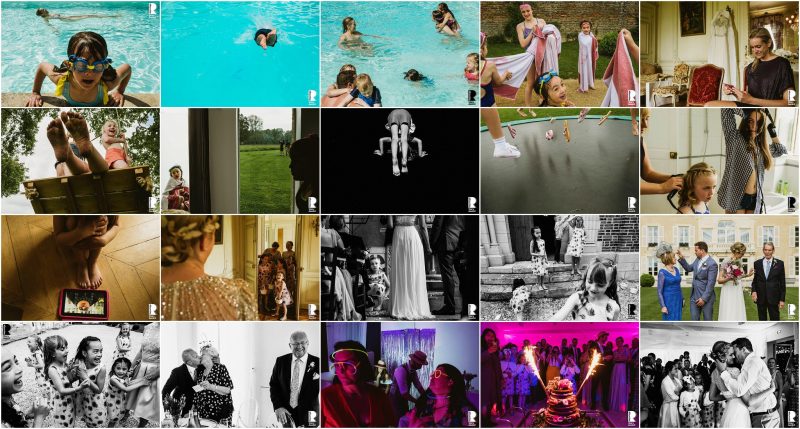
Alan Law:
And was there a certain point in there, like a certain maybe point in your career that, I don’t know, you kind of really intrinsically started to know then that you could really do it in the way that you wanted to do it? Was there a proper turning point for you or was it just totally gradual, then, and that suddenly you’ve come to this stage now?
Dominique Shaw:
I mean, it was very gradual. There was just like little kind of like inspirational, like, Oh, okay, that’s something. We could work with that, you know, and we were always talking. So back when we started the business, me and Liam, we lived in flats above each other. I was in the top one and he was in the middle one our partners worked away a lot. And so we spent all our time just talking photography, watching movies, discussing them, dissecting them, stopping in the middle of like the movie and saying, Oh, what’d you think of this and could we do this? And does this, do you like this? You know, a lot of questions. So many questions. Like, what did we like, why? And I didn’t even occur to me to, but at first it was just wedding photography, traditional. And then as the journey kind of went on and it was kind of a gradual, I was like, okay, what do I like, what do I like shooting? And then it was about like, Oh, can we actually do that at a wedding? And it was just all gradual, just tiny little like moments, I suppose one of the big moments, like later on was like in 2016 when we got the Fujifilm X Pro-2, which just fitted kind of what we wanted to achieve. So we already knew what we wanted to achieve and we were trying to do it with the Canon but it just wasn’t working. And then when we got the Fuji X Pro 2, the way that it felt and the way the images look, just fit it in with the style that we wanted to create.
Alan Law:
Yeah. Okay, cool. And are you still shooting with the Fuji’s now?
Dominique Shaw:
Yeah. Yes.
Alan Law:
Yeah. Cool. Are you ambassadors?
Dominique Shaw:
Yes. Right. Yeah, Fujifilm X photographers. Yeah.
Alan Law:
Nice. Very nice. That’s cool. So you’re not tempted to try those Sony things that everyone’s trying.
Dominique Shaw:
No, no. I mean the Fujifilm cameras just really work for us. I mean I’ve been on a Fujifilm journey for quite a while. Like I had the XT1 and Liam used to tell me off because I used to be at weddings and I’d be shooting more with that camera than with the Canon and he’d be like, but there’s no backup Dom, you know, you’ve got to use the Canon cause it’s got the backup. And I was like, yeah, I know, but it’s just, I don’t feel it as much. So it was quite amusing really that from then, from the XT1, I don’t know what year that came out, I was using it, but it was only when the XPro 2 came out, when it had the dual backup and it had other things as well, like the EVF, I was like, okay, yeah, this camera works for us. And actually we bought two to take to Cuba with us and then we did a wedding with it and I did it… I think Liam had one and I had two and I think I was culling the wedding and I just sent him a message saying, you’ve got to go just fully Fujifilm, like that was it. And we didn’t look back because all the pictures that worked in the way that we wanted to do were on that camera.
Alan Law:
That’s cool. That’s great. That’s worked really well for you guys. Brilliant. Cool. Okay, let’s change tack slightly. Let’s change tack slightly, Dom. What’s the first thing that comes to your mind? What makes you happy?
Dominique Shaw:
Oh, what makes me happy? You know, I love being at home. Yeah, like there’s a reason why it was our chosen holiday destination because we travel a lot; I love our street photography trips. They’re amazing. And all the destination weddings we do, you know, we don’t do as many as others, but when we do them and they’re amazing, they’re great and we travelled for talking and stuff. Great. But I do love home. I’m a homely person and I live in the countryside and yeah, barbecues, sun, all the things that I can do right now. I’m very grateful for that. So I guess, yeah, that and getting to be creative in some kind of form. They are the two things that make me the happiest.
Alan Law:
That’s cool. Well, that’s good. Yeah. I just need the sunshine now. It’s awful down here in Cornwall at the moment. Need some sun.
Dominique Shaw:
Oh, really? It’s really sunny. We’re having a barbecue after this.
Alan Law:
If you weren’t a wedding photographer, what would you do for a living?
Dominique Shaw:
Oh gosh. Well, I’ve always been a photographer of some sort. I’ve never had a real job. I’ve always just had a hobby that got out of control. What would I do? Well I love music. That’s how myself and my husband met. [Oh, okay. Cool.] Yeah, I sang and played the tenor sax, so…
Alan Law:
Oh really? Wow. That’s cool. Do you still do that then?
Dominique Shaw:
No, I mean I sing because I love to sing, you know, but I haven’t got out the tenor sax in a long time. You know what? I may do, I won’t have the right kind of mouth for it anymore though because you kind of hone kind of the skills of it. But I could try it again definitely. Yeah.
Alan Law:
I want to see a viral video of you entertaining the whole street Dom. I think that has got to be done.
Dominique Shaw:
I only live in like a tiny row of houses. It’s all in the countryside. So I may be just, you know, the pheasants would like it. Yeah.
Alan Law:
It’d be like a scene from snow white with all the kind of the animals coming in and singing with you. You’ve gotta do it. So let’s go back to you just cause it is quite a unique kind of situation to be a business with your sibling. I just find it very interesting cause I know for a fact and I hope my sisters are not listening, but there’s no way I could be in a business with my sisters at all. Do you guys have like specific roles on the day itself Do you have like specific roles in the business side of it as well? Or do you both just kind of do everything? How do you work it out?
Dominique Shaw:
So I do the culling. I’m the admin and Liam does the editing. And sort of between, I think Liam generates lots of ideas and then we’ll talk about them because I think it’s just how it kind of works with the role. It’s not like roles decided, it just sort of, and we’ve been doing that for so long. We used to cull together and we used to edit together. you know, when I told you about us living in the flats above each other, we do all that process together because I think we needed to learn things about the cull, you know, like, okay, what do we like about this? What did we, what could we have done better? And the same with editing, you know, we were sort of obsessed with one point about how images looked and we wanted a timeless feel. We didn’t want it to age and we’d noticed that like the trends went in and out. So we were really like focused on that. Whereas now we’re happy with kind of the style that, you know, the edit and the cull. We don’t live together anymore. I think if we lived in the same town, we’d probably work in the studio still. And then we would discuss that at some culls together. But we don’t need to. And if we have to discuss something, which sometimes we do then we’ll just do it through zoom.
Alan Law:
That’s handy. Yeah. That’s good. Oh man. But it feels to me like you’ve got the short straw there doing the cull. I hate the call. I hate the cull so much. You don’t mind it though.
Dominique Shaw:
You can say that to him when you do his interview. You got the good one. I don’t mind. I do enjoy it. And there is a real satisfaction looking through and finding, particularly with layering, finding the very best image because you know, just because it’s layered doesn’t mean that it works. It has to be, you know, a lot of other things. It’s got to have a moments or humour or story, you know, so it’s quite a satisfying process actually.
Alan Law:
Oh, that’s cool. Okay. And you cull both yours and Liam’s images. Yeah, man, that must be a fair few to go through as well.
Dominique Shaw:
Yeah, it is. I mean we don’t do that many weddings, so it’s not like… you see, when we first started, or at least when we got ourselves established, we were doing like, you know, 46, 52 weddings. And in those days, you know, we didn’t shoot as much. But yeah, there was a lot to go through and it was very difficult to manage whereas one of our decisions, cause when we’ve been going for, I don’t know, since it was like I think it was 2014 when we were like, you know what? Things are getting a little monotonous. We need to try and take…we want to be in this business like for the long haul, you know, we want to be, we don’t want to be burning out. We don’t want to get bored or get disinterested. So we had to kind of find ways. And one of the ways was through street photography and street photography taught us you know, new techniques that we could then implement in weddings. But it was all about like how, how do we, how do maintain longevity in this job? Because yeah. Because it evolves and changes and you can’t take anything for granted.
Alan Law:
No, that’s so important isn’t it? Yeah. It’s so important. I think about the future and for me personally, actually making it more interesting for me was a change in camera system when I changed from Cony….Cony?!? It’s a hybrid system that no one uses that’s unique. No, when I changed from Canon to Sony that was one reason for me just to kind of reinvigorate my love for it really. And that actually really helped. So your street photography influences though, we were you into street photography just as a hobby, like whilst you were doing your weddings or did you yeah. How did that come about? Did you think I wanted to get some different inspirations so you looked to street photography or was it again just quite natural?
Dominique Shaw:
Well, I guess it was natural because I’d spent a long time at university studying different photographers and I loved all their work and there was like a big library in my university and I would go and I would just look at all the photography books and it was amazing. And I love Martin Parr and I just go through all the books and there was a huge collection, so that was sort of always quite natural. But then doing the street photography itself, I think it was one of my assignments at university was to do street photography which was really fun, but it wasn’t the kind of street photography I would do now. It was very much about reflections and you know, it was more basic, but I was starting out and you know, there was, I remember one of my tutors saying like, oh, one time you’ll be, you know, you won’t be thinking about apertures and shutter speeds. It’ll just come naturally. And I was like, yeah, right. But eventually after, you know, periods of time it does become extinguishable and you do just start believing how you shoot is the right for you and trust in yourself. Trust in how you shoot and yeah, street photography. It was Liam, actually, who started it up again because his partner, she goes to lots of different kind of conferences abroad and he started going with her and just taking his camera and shooting it. And it was like working really well. And, and then we started putting them on our blog. And some of our couples were like, booking us because of those pictures. Ah, that’s interesting we were like, they’d prefer that than our wedding work? So we just started doing it together, more and more. And when we went to Cuba, I think that was a big trip for us in terms of that was when we started using the Fuji Pro Max2. I think it’s really interesting on street as well, or just taking street photography in general is you can experiment with things that you wouldn’t do at weddings because at weddings you’ve got to, you know, you can’t not get something, whereas you can just practice and play with something like a lens or a camera system or a style, you know, there’s things that you can just play with, you know, it’s like a playground, street photography. You can just go out and play and see what works.
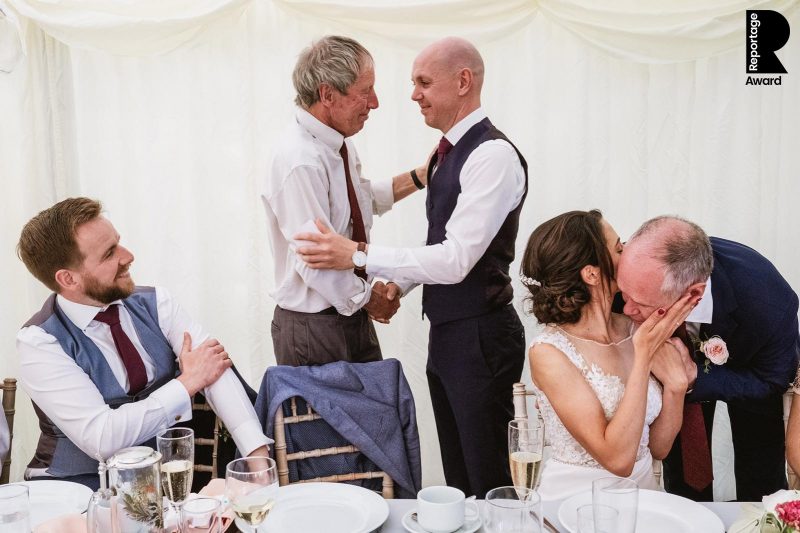
Alan Law:
Were you scared doing it at first? Cause I’ve never done street photography actually. I know maybe a lot of people listening will be interested in doing it, but maybe, you know, a bit nervous. Do you have any kind of tips for people that maybe are a bit nervous?
Dominique Shaw:
Smile, smile. Just be really open and if anyone did ask, show them the picture, you know, like just being kind, be gentle, and be nice. These are the things that are really important to me and Liam, you know, and we would never want someone to feel uncomfortable having their picture taken, you know.
Alan Law:
And I guess that same advice carries across to the way you shoot at weddings as well. I guess it’s similiar.
Dominique Shaw:
Yeah, I do think that if you’re very in tune with your emotions kind of, that definitely shows in your photography because you’re very empathetic. So yeah, I would say that kind of person works very well on the street, but it depends on kind of street photography you want to take. There’s so many different types. There’s tons, you know, I mean, for me and Liam personally, we like things that are about human behaviour and honest kind of real imagery. But other people are like really, you know, into kind of just working with shadows and light, which we play with, but we always want to have like a human element really, that kind of ties it together.
Alan Law:
Well that’s cool. And that’s like weddings kind of perfect for that as well. I mean, they’re all about the people. About the human touch and relationships.
Dominique Shaw:
Oh yeah. I mean, I love street photography, but weddings I love, love, love. Like I’m missing it.
Alan Law:
Yeah. Weddings pay a bit better than street photography as well.
Dominique Shaw:
They do. But it’s never about the money for myself and Liam. We’ve never chosen anything in our career that was kind of based on money because we always want it to be about things that work for us. So kind of our, either our happiness or happiness of our couples, you know, so we’ve never chosen to do anything for the money. And it just makes us happy that way.
Alan Law:
Yeah. Well that’s the best way to just go through life, isn’t it? It really, really is. On the day itself, do you have set roles, where, does one of you do bride prep and the other does groom prep or do you mix that up or?
Dominique Shaw:
Yeah. It’s interesting. I always do bridal prep and Liam always does groom prep. Yeah. There’s been occasions where maybe we’ve swapped for a reason, but that’s what we do. But we could easily swap it if we wanted to.
Alan Law:
And do you like, if couples still want that..if they want a few group shots, do you still do those at your weddings?
Dominique Shaw:
Yeah, absolutely. Yeah. I mean the bride and groom, if they want anything on the day then absolutely not a problem because I want them to be happy. So we’ll take anything that they’d like. Because there’s two of us as well it doesn’t really affect the documentary, which is really nice. So I tend to do the groups – some of my favourite documentary moments have happened during the groups. And that leaves Liam free to do the reportage kind of throughout that. And so there’s never like a break in the proceedings, which is really nice actually.
Alan Law:
Oh, that’s cool. That works out really well. Yeah. That’s great. You know, because you are brother and sister, do you have ever have like any kind of like massive screaming, shouting arguments at each other?
Dominique Shaw:
I love that you keep asking this, we just get along.
Alan Law:
It’s not possible!
Dominique Shaw:
No, we are sickeningly very in tune with each other. We don’t shout or argue. We agree on everything to do about business as well. We’re so lucky. We didn’t really consider it until like later on when people started saying to us like, Oh, but you agree on everything? but it’s like, yeah, yeah, we do. And we always say if we’re looking at imagery and if one person, if both people aren’t that sure about the picture, it means it’s not that good. You know what I mean? So we never argue over imagery. We never argue over our business. We always agree on the direction it’s going to go as well, which really helps. It really does.
Alan Law:
That’s quite amazing, really. I mean, not even just as brother and sister, just as any two people in life to have that kind of kind of, Oh, what’s the word? I can’t think of the word, but you’re totally kind of almost as one then really in everything. It’s awesome.
Dominique Shaw:
Yeah, it is really unusual. I mean, again, I didn’t really think about it until people start asking me, but it’s true. Like, because, you know, I was 21 when we started, you know, my decision of how we were going to start shooting, you know, it could have varied really differently to Liam’s. You know, he could have been like, I want to do documentary and I could have been like, I really want to do the portraits. And you know, that could have actually been a really interesting development as well, you know, having someone who is passionately about one thing one of the other, but as it is, we’re incredibly in tune with each other. Yeah.
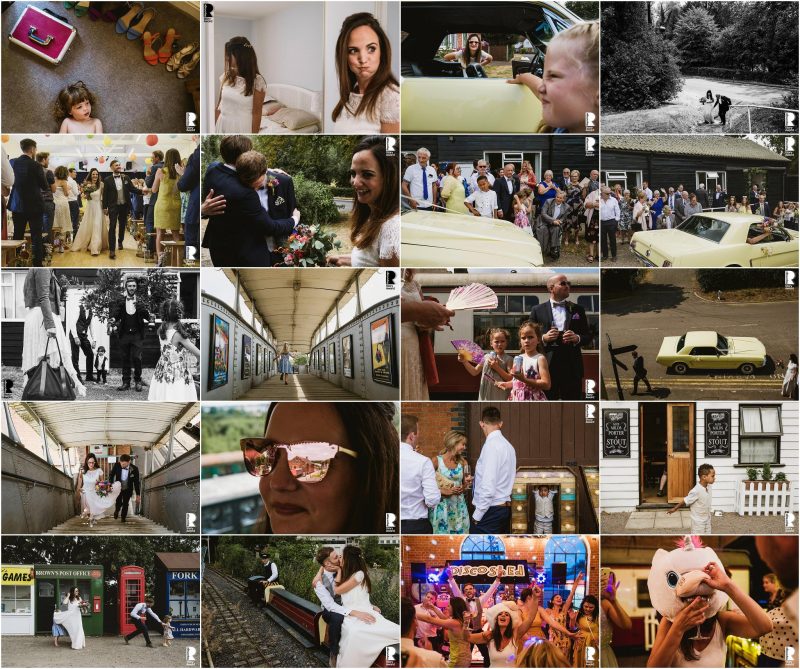
Alan Law:
That’s awesome. No, it’s very, very cool. Very cool. And is your studio that you got originally, was that on a street called York Place?
Dominique Shaw:
Yeah, we still have it.
Alan Law:
Oh, that’s cool. Okay. So I get where you get the name from. I get it. I get it.
Dominique Shaw:
Yeah. So it’s in Scarborough. We literally had a couple asking us to this today. They were like, so where are you based in York? It’s like no, the street in Scarborough is called York Place. And the studio’s called York Place Studios.
Alan Law:
Very cool. Yeah. Are you still use the studios for other kinds of work? Cause you’ve run workshops as well. Do you do your workshop there?
Dominique Shaw:
Sometimes we do workshops there. Fujifilm have done a few workshops there recently, which is nice. But we’ve also done workshops at other places as well because we’re not based in Scarborough anymore. Obviously I’m in Broughton which is near Malton, near York kind of area and Liam’s in Gateshead. So we don’t go to the studio every day anymore. But we still own it. We still love it. And yeah, we do some of our workshops there.
Alan Law:
That’s cool. And talking of workshops, you are going to be speaking at Doc Day next year. Next. Is it March? It’s March, isn’t it?
Dominique Shaw:
I think it’s March. I like the plug. Yeah, that was nice. Yeah. Really excited about it.
Alan Law:
Oh yeah. Last year’s event was great. It’s going to be awesome to have you there. And a great line-up of speakers as well. And that’s exciting.
Dominique Shaw:
It’s an amazing line-up of speakers. Yeah. I’m all man, I can’t wait just to be, you know, we’ll be allowed out of the house. I was saying to a couple, like, I think that people are going to be so excited to just party, you know, and hug. Oh, I miss hugging.
Alan Law:
Well, yeah. All those hugs that we photograph like week in, week out. And it’s weird isn’t it, that’s not happening at the moment.
Dominique Shaw:
Yeah. We’ve been going through our work from years and years and years just looking through our images which is really fun and it’s a great way of like seeing if there’s anything that you didn’t see the first time round, you know, like looking at it with fresh eyes, you’re like, Oh that actually was an image that I should have had in our portfolio. So it was a really good process. And also just, yeah, all the hugs and all the little moments. I miss them. I really do.
Alan Law:
Yeah. How do you think or what are your thoughts of what’s going to happen? You know, some people were thinking that weddings are going to be a lot smaller affairs and there’s other trains of thought. So people are thinking, you know, that it’s going to be a time where, you know, they’ve been in lockdown for so long, and they want to have as big a kind of parties as possible. How do you think it’s going to go?
Dominique Shaw:
Gosh, I don’t know. And it’s evolving and changing so fast. I wouldn’t even, I wouldn’t, and I really don’t. I’m really not sure. I mean, I think at first it will be smaller groups. Some of my weddings that are in kind of like August are saying, oh yeah, we were hoping to go ahead, but we’ve, you know, less people. And we did a wedding just before the lockdown which was the 20th of March, I think, and that was a lot smaller event, but it still happened and it was still absolutely lovely. I mean it wasn’t like, it didn’t matter that there was less people, all the people that they really loved were there, and my wedding was small. I think I only had 30 people but it didn’t matter at all.
Alan Law:
Yeah, no, it’s so true. I was going to ask you about that as well. Actually with smaller weddings because I think the, the videography arm of York Place Studios, I think is it is your other brother Alex and your husband Matt? If you’re all shooting a wedding together, do your family sometimes outnumber the bride or groom’s family.
Dominique Shaw:
I mean, we don’t shoot that many weddings, all four of us together anymore, because we tend to just do one like even Matt or Alex. But yeah, the guests are always like ‘you’re all family?’, you know, which is really nice.
Alan Law:
Do you have your own like kind of table, like do they give you a proper table at the wedding breakfast?
Dominique Shaw:
Sometimes they do.
Alan Law:
Oh, I think that’s so cool. That is so nice. And I mean, how did that happen as well? Was that just a natural extension of you doing weddings and I guess your husband was into the video side and your brother and, yeah, I guess it was just a natural thing?
Dominique Shaw:
Yeah, it was. So Matt, my husband, was a lighting and sound designer. And he was just wanting to look at something else and be a different creative field and we could see that video was going to be quite big in the industry. This was quite a lot of years ago now, at least six. And we were like, well we didn’t want to start doing video. We wanted to keep, we loved photography. But we were like there is definitely a gap in the market here and if you guys are interested and decide to come along to weddings and they love it and they do a lot on their own as well. And we do some together.
Alan Law:
Oh, that’s cool. That’s great. And do you have any tips in general for working with videographers? I guess you don’t mind working with videographers, obviously you have to say that though incase your husband and brother are listening.
Dominique Shaw:
I think just communication is the most important thing. Just you know, and being nice and talking and friendly. That’s the most important thing. And normally, you know, when we’re doing kind of the reception, we’re looking for different moments anyway, so it’s not an issue.
Alan Law:
Cool. Yeah. Okay. It’s so rare for me to work with a videographer. I think it’s only about, I don’t know, three or 4% of my weddings have a videographer. It’s just quite rare, I find.
Dominique Shaw:
Yeah, we haven’t got that many. There’s a few with the boys or with one of them, but mostly, we’ve got them on our own.
Alan Law:
Do you ever shoot, as a side issue, do you ever shoot weddings solo? Are you on your own and Liam on his own or?
Dominique Shaw:
We could and we haven’t done in the past, but it’s not something that we, you know, you can always make twice much money if you did that, but it’s not about money for us. So for us, we just prefer working together. The process, we enjoy, you know, after the wedding we’ll kind of like talk about it and like, oh, what could we have done better? Dah, dah, dah. You know, what we can improve on. Like we’re always chatting and discussing and figuring things out and, and you know, during the, the food break, you know, everyone’s having dinner and he might show me an image or I might show him an image and I’ll get us really revved up and excited for the next part. So it’s just a great atmosphere and feel to have, you know, I don’t mind doing them on my own, but I just love working with Liam. So why would I?
Alan Law:
Yeah, no, definitely. It’s so cool to hear and you can hear it in your voice. And obviously I’ve been lucky to meet you in the flesh a few times as well. Just how much you both just love photography. It’s like in your blood. You just love it, which is so awesome to hear. I just think it’s awesome.
Dominique Shaw:
Yeah, I know. We really, really do. I just love being creative. I’m so fortunate that I get like couples that are like on board with our style and invested in it. You know? Like that’s the best thing for me, you know, creating images for our couples that they just couldn’t imagine, you know, we want to exceed their imaginations, you know, that’s what we want to do. We want to kind of push the boundaries of what they expect.
Alan Law:
Yeah, no, that’s awesome. And you touched upon it earlier, I think how some of your clients kind of mentioned your street photography work. So I imagine that must be quite often with your clients. They must really be people who you know, really understand photography really, I guess. Are they often kind of artistic, kind of creative people?
Dominique Shaw:
Yeah, pretty much. Pretty much exclusively actually. Either writers or artists or photographers or wedding photographers or yeah, directors, like every form of creativity. The people we’re talking today, they had a restaurant, you know, but it was a creative restaurant, you know, they were talking about it and they were mentioned, they were like, Oh, really like your works, like Martin Parr. And you know, they were telling us about what they loved about our photography and I was just sitting back going, wow, that’s pretty amazing.
Alan Law:
Yeah, that’s very cool. Do you have a favourite, just to go onto a technical thing, I don’t often talk about technical stuff on the podcast, but do you have a favourite kind of lens or favourite focal length?
Dominique Shaw:
The 23 1.4 definitely. I had to do something recently where I was like if you had your favourite lens and camera, what would it be? And it was the X Pro 2. And the 23 1.4 cause it’s just the one that’s constantly being used for us. You know, it’s 95% of our images are taken on it and I just love the vocal length.
Alan Law:
Do you find that helps with your kind of layering? So do you have any tips because obviously a big aspect of your work is the layering and I think a lot of people kind of aspire to that? Do you have any tips for layering?
Dominique Shaw:
Yeah, it’s about looking for balance. It is for us anyway, like we’re looking, so like if you could draw like around all the people you know. So there’s like, there’s no like heads on heads or like arms sticking out. Now some people that’s a style that they choose. But myself and Liam have like a set of rules that we adhere to that we always use to keep ourselves consistent. And what we want to give kind of a style for and one of them is kind of like cleaning up images. So if an image has like a like a hand coming out of a back and it doesn’t, it looks wrong, you know what I mean? Or a head on head and it looks untidy, then it doesn’t get included. So we’re quite…
Alan Law:
That must take a lot of time and effort. So I think that’s really cool how you must be specifically, you know, getting that composition and movement and waiting. I guess it’s a combination of all those kinds of elements.
Dominique Shaw:
Yeah. We’re more kind of like hunters on the wedding day as opposed to kind of like, yeah, we’ll hunt down composition as opposed to wait for things because weddings are so fast moving so it’s better to kind of hunt it down. But yeah, for us, the set of rules is really important. I think as if you’re a duo, it is important to kind of have an agreed set of rules or you know, just so that everyone knows we’re on the same page.
Alan Law:
Mm, no, that’s true. Yeah. And just what I think about it when you’re both so similar again, does that mean you both order the same meal at McDonald’s after a wedding?
Dominique Shaw:
Yeah, we do. I mean I can’t have bread because I’m gluten free. But I still have the burger, quarter pounder with cheese. We like the same movies. Yeah. Yeah, we do. It’s same sense of humour as well. I think, you know, as we we’re brother and sister, we saw the same TV shows, children’s TV shows when we were younger and yeah, we like the same stuff.
Alan Law:
Are you sure you’re not twins?
Dominique Shaw:
People have asked us about it, but no, we are very twinnie in that way. Yeah.
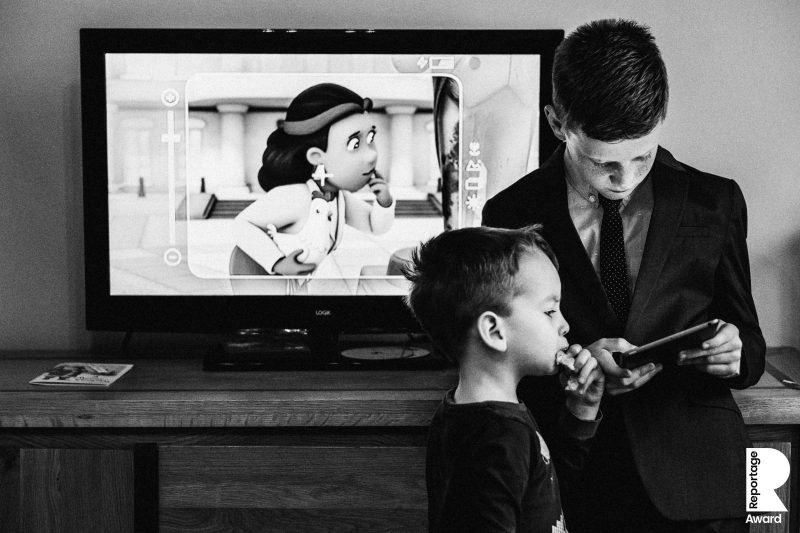
Alan Law:
That’s cool. Let’s talk about one of your specific Reportage Awards (above). The one that features like two boys looking at a phone or it looks like maybe it’s a phone or a console and behind them is a TV character in the background, the character appears to be looking at their screen. I think it’s a character from Paw Patrol actually, isn’t it? I think it it, but yeah. Can you tell us about that? I mean, are you always looking for that? Are you always looking for those kinds of opportunities? How did that specific image happen?
Dominique Shaw:
Yeah, we are always looking for those kinds of moments, you know, that’s what really drives us and what we get excited by on the wedding day. In this particular instance, it was a bridal prep but everyone had gone up to kind of shower. Like there wasn’t anything else going on apart from these two children looking at, you know, I think it’s a console. And that was all it was going on really. They were just there in the room and it was quite a dark room as I recall. And kind of messy. It was like a children’s room and it was like the children’s room next to the bridal prep room. And I went in there and they were obviously doing that and then I saw the TV was on. And I always try and see if I can connect them in some way, connect the TV and the children or whoever is in the frame, the key character to it. And in this incident yeah, I think it is Paw Patrol. And the little character’s sort of leaning in and looking at the children’s console, which I thought was really amusing and I just waited and watched. That was actually definitely one of those kind of waiting moments because I had time. It was bridal prep and it wasn’t like there was anything else going on. So I was like, okay, let’s just wait and see what happens on this TV. I didn’t wait that long actually. But what I love about that image is that someone else is taking a picture of that character, the TV character in it.There’s like a macro and there’s a landscape and someone is taking a photograph of the character. So there’s someone’s taking a picture of the character and then I’m taking a picture of the character and the children.
Alan Law:
Man that is postmodern inception stuff. No, it’s a proper cool capture anyway. And if people are listening to this, you know, whilst doing that one bit of daily exercise or something and then check out in the post on thisisreportage.com and you’ll see the image as well. That’s a great image. And I guess, I mean, personally for me, one things that I love about weddings, I think it’s similar for you is that, you know, we don’t just focus on the big moments. It’s all these kind of little moments which are, you know, almost just as important, aren’t they?
Dominique Shaw:
Yeah. I mean, they are the ones… cause like the big moments they shout out to you, you know, they, please photograph me, you know, like, you know the speeches and the cutting cake, they’re going to happen. You’re going to photograph them, they’re going to happen. But like the little moments, the kind of the ones that kind of whisper, they’re the ones that are more difficult to see. But they’re so rewarding when you do get them because you’re like, Oh, I was listening, I was thinking, I was in tune enough to get a moment that wasn’t one of the big ones. It wasn’t like the confetti throwing, you know, it was something much smaller than that. And I find that very satisfying.
Alan Law:
That’s cool. Totally agree. I know what I think, but do you think documentary wedding photography is art?
Dominique Shaw:
Yeah, I think, yeah, definitely. [I do too]. I mean, yeah, being a wedding photographer is so difficult. You know, I have such respect for people who do this job, you know, because we have to be good at so many different things, so many different facets, you know, we have to be good at. So yeah, I have massive respect for anyone who’s doing this job. And also it’s just such a great job, you know, photographing documentary particularly. It’s just fun. You know, just seeing these little moments and capturing them and giving people images of their wedding day. I mean, honestly, I don’t think there’s a better job.
Alan Law:
Yeah, no, I’m with you. It’s awesome. It’s awesome. Have you made any memorable mistakes ever?
Dominique Shaw:
Memorable mistakes? That’s a tricky one.
Alan Law:
That’s good. It’s good that it’s a tricky one. That means nothing major is coming straight to your mind. It’s probably for the best.
Dominique Shaw:
Memorable mistakes. I mean, I can think of bizarre things that have happened at weddings that like were wonderful which was… This is a random story and it’s not a memorable mistake, but it’s still really cool. So I’m going with it.
Alan Law:
Yeah, you go for it.
Dominique Shaw:
There was a bride quite a few years ago now and her grandma had passed away and she’d always said that her grandma loved butterflies and she had like a theme of butterflies on her wedding day to like, you know, keep her grandma’s spirit part of the wedding. Anyway. We’re doing the dress up. The bride is having a dress up and she put her foot into the dress and a butterfly flew out.
Alan Law:
Oh wow. That’s mental.
Dominique Shaw:
It was pretty crazy. Yeah. And then everyone started crying because they were just like, oh, grandma’s here. It was really lovely. It was really, really, really lovely.
Alan Law:
Well, that’s given me like little goose bumps.
Dominique Shaw:
It’s a really nice story, isn’t it? It’s not a mistake, but it was something that came to mind where I was like, that was an unusual element. But like, you know, that’s the thing about weddings, you know, you never know what’s going to happen.
Alan Law:
No, that’s so true. And your story is so much lovelier than mine about the drunk bride who laid down over the cold buffet in the evening for a photo.
Dominique Shaw:
Yeah, that’s true.
Alan Law:
You touched upon earlier as well about, and it’s just one element of your work is a conscious decision that you don’t use flash. Any tips for people who would also like to do that? You know, who don’t like using flash but are just nervous about doing so.
Dominique Shaw:
Yeah, I mean it’s way easier than it used to be. When we first started doing it we were doing it with like the Canon 5D I believe. And it was a lot trickier then cause ISO levels I think, well like highest was 1600 or so. So that was a lot more difficult. So now it is easier, I mean. I would say for the dance floor, try and find something to focus on that, you know, because it’s quite difficult to focus on eyes in the dark. So focus on something like a colour, you know, something that kind of, that you can focus on that it’s on the same like plane but will ensure that you know, that you get it in focus.
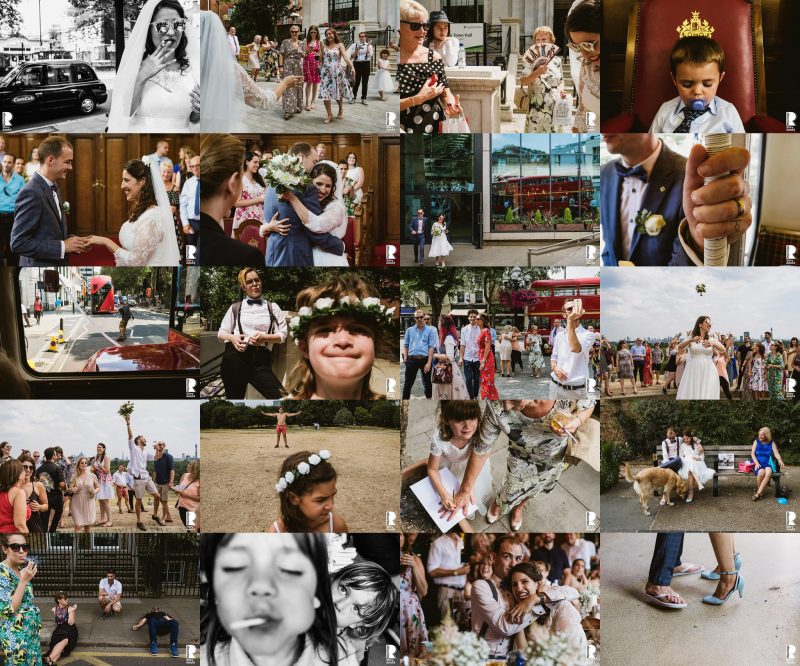
Alan Law:
Are you like manually focusing at that time or…
Dominique Shaw:
Sometimes, not often. We basically shoot it like, I guess it’s flash, you know, we look to the light and there is always some light because otherwise everyone would be in the dark, literally.
Alan Law:
Yeah. It’s true that. Like have you ever eaten at that restaurant in London? It’s called Dans Le Noir or something, where it’s pitch black?
Dominique Shaw:
No. Is that really a thing?
Alan Law:
It is. It’s in that film, About Time, as well, but I’ve been to it. I think in Farringdon or I don’t know, I think they’ve got a couple, but yeah, and you’re led in by like blind waiters and things and you don’t know what you’re eating as well. So you’re eating the whole meal in the total pitch black and then afterwards you kind of guess what you were eating. Yes.
Dominique Shaw:
Wow. That wouldn’t be good for a celiac. Oh no, gluten free please. Yeah, kinda ruins the surprise a little bit, but I don’t want to be ill.
Alan Law:
Beforehand you can pick from like, a vegetarian meal or like a mixed meats meal or whatever. So it’s like a general guideline, but they don’t tell you the exact things that you’re eating.
Dominique Shaw:
No, I have never done that but that would be tricky.
Alan Law:
It is an experience. Like even trying to pour your own wine in the pitch black, you know, it’s yeah….
Dominique Shaw:
Whoa. I bet they get through like their cloths constantly. I bet they’re like black or something or horrible, you know. No one can see them anyway.
Alan Law:
That’s so true. Yeah really cheap decor.
Dominique Shaw:
Yeah, probably just a box.
Alan Law:
Anyway, sorry. Totally went off that tangent. Yeah it was just, cause you were talking about there’s got to be a bit of light when you’re shooting on the dance floor. Yeah. So I guess it’s always a bit of available light.
Dominique Shaw:
Yeah, absolutely. There is. We’ve shot wedding ceremonies by candlelight, but there’s always a light source, you know, and with the Fujifilm camera, it’s got an APS-C sensor, which means, you know, it’s a crop sensor, which is a really an advantage for us because it means that more things are in focus on the plane. So that works. So like for some people, obviously that’s a disadvantage, but for us it’s a massive advantage, an APS-C sensor and one that we really love.
Alan Law:
No, that’s cool. I mean it obviously works so well for you as well. And I think a lot of people saw the quality of your low light work when you photographed the first nine dots gathering conference and the partying images, I mean there’s hardly any light there. And the images you’ve got were just awesome.
Dominique Shaw:
It’s so funny because there was loads of light there. Like everyone said to us like, oh you’re going to struggle. And we were like, no, no, no, no. This is good light. This is fine. We can work with this.
Alan Law:
That would have scared so many people though, a lot of people would have wanted to lit it up with about four flashes
Dominique Shaw:
Really? No, we loved it. I mean the atmosphere though, you know, without using flash. I mean it really felt like that’s what it looked like. I mean, one of the reasons why we don’t use flash is that there’s two of us and we wanted to have everything consistent, you know, and we also wanted it to be like our street work as well. And so we’ve chosen to have nothing with flash and then therefore everything… like we can put street images into our, like our Instagram feed for instance, and they look the same, you know.
Alan Law:
Do you talk to your clients beforehand about like, kind of like why you don’t use flash or, I mean, do you talk about that kind of technical stuff beforehand or not?
Dominique Shaw:
Sometimes if they ask, but most people…they don’t tend to book us for, like, they used to like, so there’s been like transitions in our career and one of them was that we didn’t use flash and then it was that we didn’t do portraits or, you know, it’s not, although we would and do, it’s not like it’s a big selling point and we don’t show them at all. Same with groups so people don’t want that kind of style. And now it’s more that people like the street style wedding photography. Which means that people book us for our reception photographs, not as much for our dance floor work. You know, it’s definitely for some couples of ours, that’s still like something that they choose to go for. But mostly now it’s because of our reception and our kind of our street style work.
Alan Law:
Right. Okay, cool. And you touched, you mentioned earlier as well, how you’ve shot weddings of fellow wedding photographers. Have you done that a few times then now does that, do you find that more exciting or is it scarier?
Dominique Shaw:
It’s the same really. I mean, like a lot, most of our couples are really creative, you know, as I’m saying, like they’re directors, you know, so you kind of get used to that sort of level of like bringing it, you know, we want to for each couple, you know, I don’t get nervous because I know I’m going to just shoot how I see the world and I can’t change how I’m going to see the world. I used to get quite nervous because I was like, you know, Oh, I can’t do photographs like X photographer, you know? But now I’m like, no, no, I’m just going to shoot how I shoot which is the same as Liam, which is really advantageous and do that kind of style and that they love it and we love it. And it just makes you feel not nervous. It makes you feel comfortable and eager.
Alan Law:
That’s so cool. That is such a cool, great way to look at it. And I need to feel like that. I really do. I really wish I did. I need to. I really need to.
Dominique Shaw:
Well, it takes time. I mean, how long have you been shooting?
Alan Law:
Oh, this would be, well would be I think like my seventh or eighth year now. So I’m not that new.
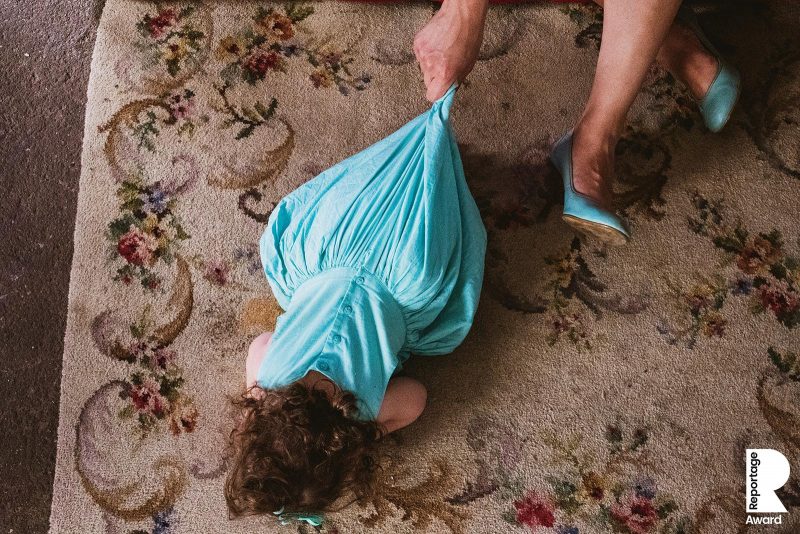
Dominique Shaw:
No, but it, I mean I would say it at least took five, six years for us to feel like truly comfortable. And, you know, it’s only since like 2015 that we were feeling like, okay, this is the kind of style and it’s really only since like 2017, 2016, 2017 when we took the graveyards picture that was, you know, that was 2016. So yeah, that kind of that time when we started to feel more comfortable in our own photography skin if you like, and like this is how we shoot, this is what we love. And just embraced it, went all in.
Alan Law:
No, that’s cool. I think that’s really great advice as well for anyone that’s listening. And talking about advice you were one of our first ever judges; you were a judge on the very first collection of reportage. So yeah. Thank you again for that because you trusted in me, you know, making this thing before you even knew what it was you, you agreed to be a judge, which I’ll always be really thankful for.
Dominique Shaw:
Pleasure. It was an easy decision.
Alan Law:
No. Well thank you. It was a big deal. It was a big deal to have you as a judge. Thank you. And you’ve won loads of awards yourself. Obviously you’ve been a judge. Do you have any tips for submitting, you know, as a judge and a multi winner yourself?
Dominique Shaw:
Tips. I mean…
Alan Law:
I know it’s a big subject.
Dominique Shaw:
For me I try and choose images that I really love and therefore if they win, I’m delighted and if they don’t win, I’m like, well I love them. So I feel really comfortable with that. You know, I would never want to choose an image thinking, Oh well this is an award winning image, whatever that really means. You know, I would rather have an image that I love and that fits our brand and that fits our style because otherwise you can get known for an image that doesn’t fit your style, your brand, what you’re trying to achieve. And that can really confuse the message between your couples and in between photographers as well who would follow you.
Alan Law:
Mm, that’s so true. Yeah. And that’s a really good idea. Anything for stories specifically cause you’ve won loads of stories. I think you’ve won like six Story Awards or something, which is amazing. Any specific thoughts on them? When you were looking at the stories yourself as a judge, you know, what were you kind of looking for?
Dominique Shaw:
I mean, I was looking for interesting frames for each part of the day, you know, and something that will either move me in some way. You know, even it was funny, you know, I had to feel something. It didn’t have to be funny or emotional, but it had to be something that made me go, Oh, that makes me feel something. Just because it’s so subjective, you know? So everyone’s opinion on this is going to be so different. But for me it has to be something that compositionally is sound. But has story, moment, light, potentially, you know, but actually it’s all about the feel. The feel is the most important thing for me. And that is why every time you can put an image in like four times, but it won’t win. And then someone else will feel it the same way you feel it and then it’ll win. So I wouldn’t worry. I would just choose what feels right for you. And yeah, compositionally interesting is something that I always enjoy.
Alan Law:
That’s cool. Cool. Great. Thank you. That’s awesome. Time for a couple more questions. I think time has flown by really quickly. What are you afraid of Dom?
Dominique Shaw:
Afraid of? Wow.
Alan Law:
I know it’s a penultimate very light question there.
Dominique Shaw:
That’s so, wow. And that’s a tough one. What am I afraid of?
Alan Law:
You’re fearless Dom. It’s good
Dominique Shaw:
I’m not fearless. I mean when I was younger I was much more fearless.
Alan Law:
Oh really?
Dominique Shaw:
Yeah, yeah. No, I think when I was 21, honestly, I was just like this business is going to work.
Alan Law:
Well, that’s a really great mind-set to have though, isn’t it? And you’ve achieved, you know, partly because of that mind-set though as well.
Dominique Shaw:
Yeah, yeah. Yeah. But fearless…? I’m sorry, what am I afraid of? What am I afraid of?
Alan Law:
Me asking a silly question like that, I think.
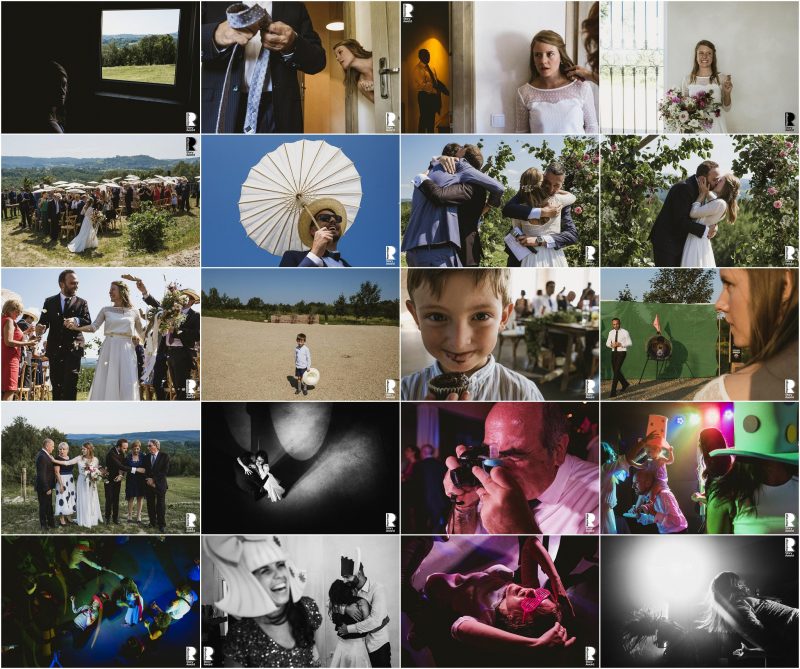
Dominique Shaw:
Yeah, and I mean I’ve always tried to overcome fears, you know. And like, I mean there’s nothing I’m like afraid of. I’m like, I don’t really like heights that much, but at the same time I’ll still, you know, go on roller coasters and things. Yeah. I’ll still…I don’t really like roller coasters. I’m not afraid of them, but I’m also not that fond of them.
Alan Law:
Really? Not that keen on?
Dominique Shaw:
No, I’m not that keen on that but in terms of something that I’m truly afraid of…
Alan Law:
What about kind of big things? Like, do you ever fear for the kind of future and just if you’ll be shooting weddings in 15 years’ time or anything?
Dominique Shaw:
No, not really. I mean, we’ve been going a long time now and we’re just trying to adapt and change and evolve. And we’ll just make it work, you know. I guess this is a similar kind of 21 year old Dom’s kind of expression on it. But it’s true. It’s like, well, you know, we’ll make it work because we have to.
Alan Law:
Yeah. Well honestly I think that’s such a great attitude. It’s just the best attitude to have. It’s awesome. It’s great. Time for one more question then Dom which I’ve not asked in a while. Do you eat the canapes?
Dominique Shaw:
Do I eat the canapes? No.
Alan Law:
No, you don’t, really? Not at all, ever? Not if they were little like quarter pounder with cheeses?
Dominique Shaw:
No. Well see I’m a celiac, so like that’s just one of the things, you know, I don’t want to be eating something that could potentially have wheat in it, but also like the reception is mine and Liam’s favourite part of the day. So we’re not going to be wasting it like, you know, eating. We love the reception. It’s when people are being people rather than there being like a structure to the day. So that’s our favourite part. So, no I never really considered to eat the canapes. Yeah.
Alan Law:
Great. That was good. I love it. I love all the different answers. I think that’s awesome. Yeah, it’s awesome. Awesome. Oh Dom, we haven’t got time, but thank you so much for that. You were brilliant. So many great bits of information. It’s so interesting to hear all about you and about you both. Thank you.
Dominique Shaw:
Oh my pleasure. Thank you for inviting me.
Alan Law:
Oh, it’s an honour to have you on here. Really is. Yeah, brilliant. Anyone who’s listening whilst editing, I always say that, but there’s not many weddings to edit at the moment, but people might be listening to this in like six months’ time, you know, going through the backlog. So yeah, if you are, head to thisisreportage.com and I’ll put loads of links to Dom’s work and those of her award-winning images and that specific Reportage Award that she spoke about in the piece as well. And I hope I get to, I’ll be seeing you, if we can physically meet up, I guess it will be in Doc Day in March. That’ll be the next time we’ll see you.
Dominique Shaw:
Ah second plug, well done!
Alan Law:
It’s our show. I can do that. It’s all right. Good.
Dominique Shaw:
Yeah, no, I can’t wait for Doc Day. There’s going to be a real celebration. And yeah, got lots of time to work on the presentation as well.
Alan Law:
You do, I guess. And it will be great. I mean, I recently saw you, I’ve seen you talk twice now, I think. Yes, I saw you at nine dots and elevate, was it last month? Elevate.
Dominique Shaw:
Yeah, March. Yeah. March. Yeah.
Alan Law:
And you were both brilliant, so I’m sure you sure you’ll be awesome at Doc Day as well, so yeah, look forward to seeing you both there and hopefully soon if possible. But yeah, it’ll be great to see you.
Dominique Shaw:
I hope so, Alan. Yeah, definitely. Go for a cider or something.
Alan Law:
Yes. Always. Always. Awesome. Thanks so much Dom, and you stay safe.
Dominique Shaw:
Yeah, you too.
Alan Law:
Bye. Bye.
Dominique Shaw:
Bye.
***********************************************************
We hope you enjoyed our Dominique Shaw interview today; thanks so much, Dom!
View lots more examples of her work on her website, or here on her TiR profile.
Interested in joining us? The deadline for our latest round of awards is 23:59 BST on 24th May 2020; members receive 60 Reportage Award and 18 Story Award entries per year. Find out all the details and join us.
